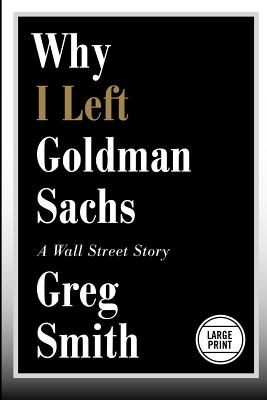
description
5On March 14, 2012, more than three million people read Greg Smith's bombshell Op-Ed in the New York Times titled "Why I Am Leaving Goldman Sachs." The column immediately went viral, became a worldwide trending topic on Twitter, and drew passionate responses from former Fed chairman Paul Volcker, legendary General Electric CEO Jack Welch, and New York City mayor Mike Bloomberg. Mostly, though, it hit a nerve among the general public who question the role of Wall Street in society -- and the callous "take-the-money-and-run" mentality that brought the world economy to its knees a few short years ago. Smith now picks up where his Op-Ed left off. His story begins in the summer of 2000, when an idealistic 21-year-old arrives as an intern at Goldman Sachs and learns about the firm's Business Principle #1: Our clients' interests always come first. This remains Smith's mantra as he rises from intern to analyst to sales trader, with clients controlling assets of more than a trillion dollars. From the shenanigans of his summer internship during the technology bubble to Las Vegas hot tubs and the excesses of the real estate boom; from the career lifeline he received from an NFL Hall of Famer during the bear market to the day Warren Buffett came to save Goldman Sachs from extinction-Smith will take the reader on his personal journey through the firm, and bring us inside the world's most powerful bank. Smith describes in page-turning detail how the most storied investment bank on Wall Street went from taking iconic companies like Ford, Sears, and Microsoft public to becoming a "vampire squid" that referred to its clients as "muppets" and paid the government a record half-billion dollars to settle SEC charges. He shows the evolution of Wall Street into an industry riddled with conflicts of interest and a profit-at-all-costs mentality: a perfectly rigged game at the expense of the economy and the society at large. After conversations with nine Goldman Sachs partners over a twelve-month period proved fruitless, Smith came to believe that the only way the system would ever change was for an insider to finally speak out publicly. He walked away from his career and took matters into his own hands. This is his story.
member goods
No member items were found under this heading.
Return Policy
All sales are final
Shipping
No special shipping considerations available.
Shipping fees determined at checkout.







